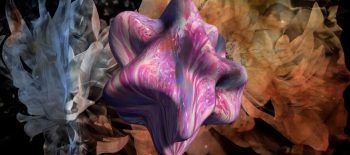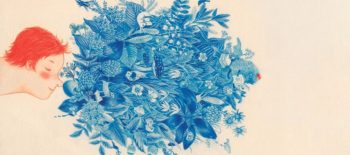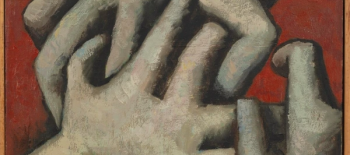Whether someone is moving thousands of kilometres away or to another part of his own country, migration always uproots people. The exhibition ‘HomoMigratus – Understanding human migration’, which is being held at the Musée de la Vie Wallonne from 29 April until 11 December 2016, provides an opportunity to take stock of these phenomena, which have existed for millennia, in order better to understand them. Several approaches are put forward with a view to putting the present situation in perspective with regard to historical migratory phenomena. The exhibition also gives a voice to immigrants from different generations and origins.
In planning since 2011, this multidisciplinary project aims to come up with lines of enquiry and tools with a view to safeguarding and familiarising people with the individual and collective memory of a Wallonian population which is becoming increasingly cultural diverse: at present, 322,000 foreigners live in the region of Wallonia, which amounts to 9.5 % of a total population of 3,500,000 inhabitants. Wallonia has therefore earned its nickname ‘Terre d’accueil’. Many Poles feauture amongst these non-native speakers. In order to gather their accounts, the Musée de la Vie wallonne has worked particularly closely with the Ethnographic Museum in Krakow, and more specifically with the ethnologist Magda ZYCH, as part of a partnership supported by the WBI.
This exhibition is part of events being held to commemorate the 20th anniversary of the ‘Cooperation Charter between the Province of Liege and the Voivodeship of Lesser Poland’ and the 20th anniversary of the ‘Amitiés belgo-polonaises’. One such event is the POLISH DAY which will be held on 27 November 2016.
PRACTICAL INFORMATION
>>> Musée de la Vie wallonne (Cour des Mineurs, 4000 Liège) – access
>>> 29 April > 11 December 2016
28 April 2016 – Vernissage
27 November 2016 – Polish Day !
>>> Free
Information and booking: +32 (0)4 237 90 50 | +32 (0)4 237 90 60
The Polish Institute has collorated with the Musée la Vie wallone on two occasions, and both times it was a resounding success:
– at the international symposium ‘Le Musée d’ethnographie, entre continuité et renouvellement’ held on 26 and 27 February 2013 (>>> find out more HERE)
– at the exhibition Dom/Home by A. Kramarz and W. Łodzińska from 29 November 2014 until 31 May 2015 (>>> find out more HERE)
The issue of migration is at the heart of the way Poles have always thought about the history of their society. One can cite the emigration of the intelligentsia in the XIXth century and during the communist period, the return of the Poles following the Versailles treaty, debates on the Schengen area, etc. Here, contacts were established between Belgium and Poland: we know we can visit the Bibliothèque Royale de Belgique to admire the collection of medals awarded to the famous historian Joachim LELEWEL, but many are perhaps unaware that some soliders from the First Armoured Division of General MACZEK, who liberated Flanders in 1944, set up home permanently in Belgium. The project ‘Nasze ślady’ aims to collect testimonies from these Polish emigrants who actively participated in the history of Belgium.
>>> You can read these testimonies in Polish, French and Dutch on the page www.naszeslady.be/ (Polish | French | Dutch)
In planning since 2011, this multidisciplinary project aims to come up with lines of enquiry and tools with a view to safeguarding and familiarising people with the individual and collective memory of a Wallonian population which is becoming increasingly cultural diverse: at present, 322,000 foreigners live in the region of Wallonia, which amounts to 9.5 % of a total population of 3,500,000 inhabitants. Wallonia has therefore earned its nickname ‘Terre d’accueil’. Many Poles feauture amongst these non-native speakers. In order to gather their accounts, the Musée de la Vie wallonne has worked particularly closely with the Ethnographic Museum in Krakow, and more specifically with the ethnologist Magda ZYCH, as part of a partnership supported by the WBI.
This exhibition is part of events being held to commemorate the 20th anniversary of the ‘Cooperation Charter between the Province of Liege and the Voivodeship of Lesser Poland’ and the 20th anniversary of the ‘Amitiés belgo-polonaises’. One such event is the POLISH DAY which will be held on 27 November 2016.
PRACTICAL INFORMATION
>>> Musée de la Vie wallonne (Cour des Mineurs, 4000 Liège) – access
>>> 29 April > 11 December 2016
28 April 2016 – Vernissage
27 November 2016 – Polish Day !
>>> Free
Information and booking: +32 (0)4 237 90 50 | +32 (0)4 237 90 60
The Polish Institute has collorated with the Musée la Vie wallone on two occasions, and both times it was a resounding success:
– at the international symposium ‘Le Musée d’ethnographie, entre continuité et renouvellement’ held on 26 and 27 February 2013 (>>> find out more HERE)
– at the exhibition Dom/Home by A. Kramarz and W. Łodzińska from 29 November 2014 until 31 May 2015 (>>> find out more HERE)
The issue of migration is at the heart of the way Poles have always thought about the history of their society. One can cite the emigration of the intelligentsia in the XIXth century and during the communist period, the return of the Poles following the Versailles treaty, debates on the Schengen area, etc. Here, contacts were established between Belgium and Poland: we know we can visit the Bibliothèque Royale de Belgique to admire the collection of medals awarded to the famous historian Joachim LELEWEL, but many are perhaps unaware that some soliders from the First Armoured Division of General MACZEK, who liberated Flanders in 1944, set up home permanently in Belgium. The project ‘Nasze ślady’ aims to collect testimonies from these Polish emigrants who actively participated in the history of Belgium.
>>> You can read these testimonies in Polish, French and Dutch on the page www.naszeslady.be/ (Polish | French | Dutch)
Links
Musée de la Vie wallonne: http://www.provincedeliege.be/fr/viewallonne
from to
Scheduled Arts 




